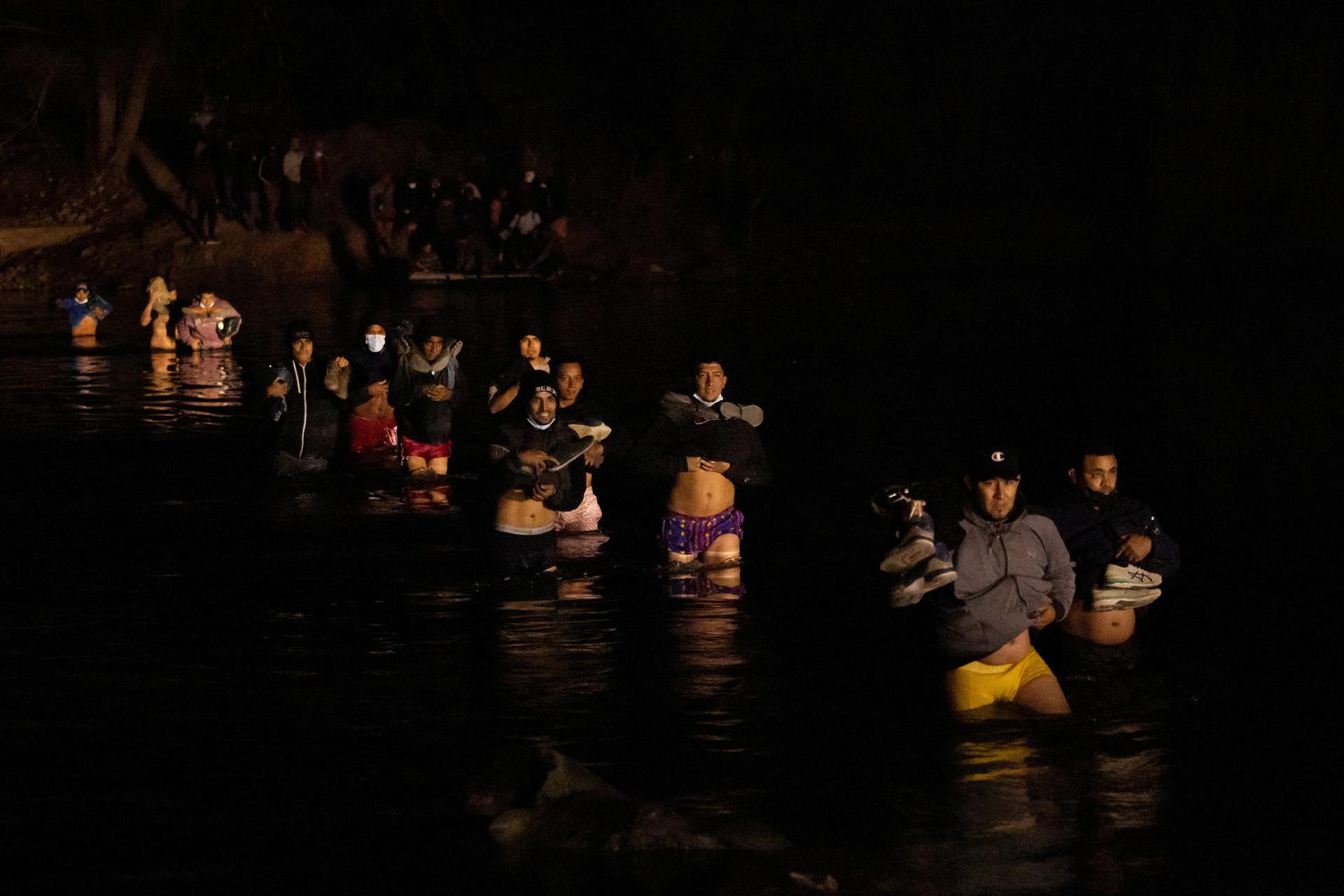NEW YORK – The current and incoming leaders on migration for the U.S. bishops expressed cautious optimism about one March 4 court decision mandating that migrants can’t be expelled to “places where they’ll be persecuted or tortured,” but dismay over another striking down protections for unaccompanied minors from immediate expulsion.
Each decision was related to Title 42, a border policy that allows the immediate expulsion of migrants and limits their right to seek asylum. Regardless of the nature of the court’s recent decisions, both bishops say it ignores what’s really needed.
“This is a distraction to what we are really hoping to hear, not from the courts, but from the government and the Congress about comprehensive immigration reform,” Auxiliary Bishop Mario Dorsonville of Washington, the U.S. Conference of Catholic Bishops’ migration chair, told Crux.
Bishop Mark Seitz of El Paso, who takes over as migration chair in November, said the fact that Title 42 is still at the center of the immigration conversation two years after its implementation makes him “very concerned about what the future of this debate may be.”
“So many people in this country, and I don’t think it’s just one political group, have accepted this conclusion that people who come across our southern border are a threat to us,” Seitz told Crux.
Title 42 was implemented by the Trump administration at the onset of the COVID-19 pandemic. It was rationalized as a public health measure to limit the spread of COVID-19. The Biden administration decried the policy both on the campaign trail and in office as inhumane, though it has been kept it in place for more than a year as the number of migrants has surged.
The first court decision on March 4 came from the U.S. Court of Appeals for the District of Columbia Circuit, which ruled that migrants can’t be expelled to “places where they will be persecuted or tortured.” The ruling only applies to migrant families with children.
Seitz argues that Mexico, particularly the cities along the U.S.-Mexico border should be considered a place where migrants face persecution, especially those from other countries. He spoke of a trip he took across the border to Ciudad Juáez last week where he spoke to “one person after another who had to deal with robbery, with extortion, with kidnapping.”
One Honduran family in particular, Seitz said, was held for six weeks until they could raise enough money to pay a $6,000 ransom, and now they’re hesitant to leave the Ciudad Juárez shelter out of fear that a similar situation could happen again.
“These are the types of circumstances we’re placing people into,” Seitz said.
Tania Guerrero, an attorney with the Catholic Legal Immigration Network (CLINIC), told Crux that the logic when it comes to Mexico should be simple: “Persecution and torture anywhere is persecution, is torture.” She called the decision itself a “great step forward,” and noted that it’s an opportunity for the Biden administration.
“I believe that based on the D.C. circuit court decision the Biden administration should end Title 42. It’s a good moment in time,” Guerrero said. “I also think this is a great catalyst to restore asylum and to restore an asylum system that includes ports of entry, respects due process.”
The other March 4 decision came out of the U.S. District Court for the Northern District of Texas Fort Worth Division, ruling that unaccompanied minors aren’t exempt from Title 42 expulsion.
Seitz called the decision mind-blowing, saying he’s shocked at its “coldness.”
“Even the most hard-hearted of human beings usually can find a soft spot in their heart for children, but we’re just reduced to what the law says without any kind of consideration that we would be putting individual children into a place where they would be completely helpless and vulnerable to criminal elements,” Seitz said.
Dorsonville said everything related to children is “sacred,” adding that “by all means children should be treated as the future of society, rather than as a danger for the society.”
Both bishops spoke of the need for continued advocacy for immigration reform, as well as educating people about and highlighting the stories of migrants at the border.
To that end, Dorsonville said he hopes the USCCB joining The Alliance for a New Immigration Consensus alongside other faith groups, business entities, and grassroots organizations provides a ray of hope to migrants, and motivation for the government to work together.
The coalition advocates for immigration reform. It has more than 30 members including the Episcopal Church, National Association of Evangelicals, National Latino Evangelical Coalition and the Ethics and Religious Liberty Commission of the Southern Baptist Convention.
Acting as part of an alliance “shows good will for all of us to see that we can lower down our differences and find out the benefit and goodness we can bring to all of the people that are expecting something from our religious tradition,” Dorsonville said.
Seitz emphasized the need to inform people about the effect Title 42 has on migrants, and from there the fact that the current system is broken and needs to be reimagined. He also acknowledged his perspective has shifted on the Biden administration after expectations and promises that have yet to be fulfilled. Although, he said there’s still time.
“What I saw with the Biden administration was a very hopeful beginning … but what we came to see more clearly is that there’s another strain of staffers in the administration focused not so much on long term outcomes, but the immediate political ebb and flow, and they have the upper hand very often,” Seitz said.
“I don’t think the story is over yet,” he continued. “But we just realize that we have a higher hill to climb before we will make lasting change for the better.”
Follow John Lavenburg on Twitter: @johnlavenburg













